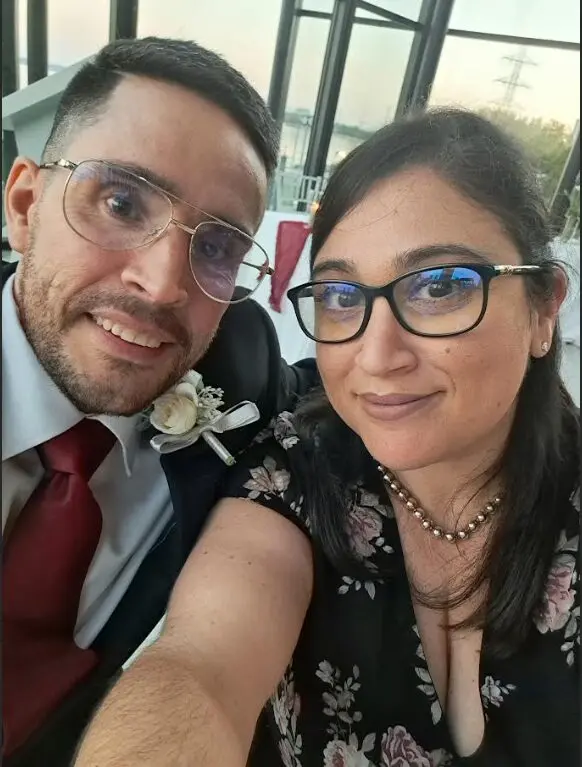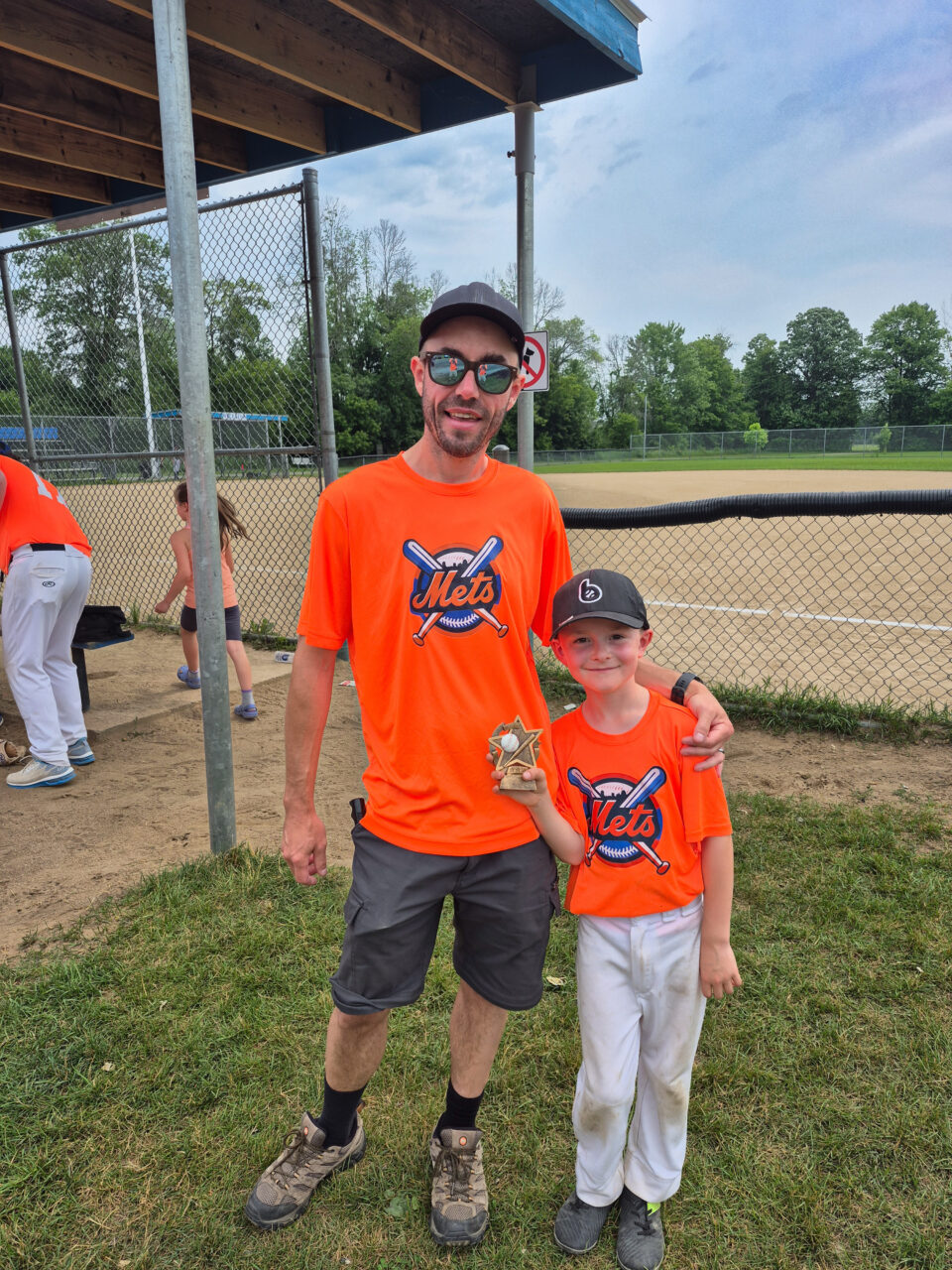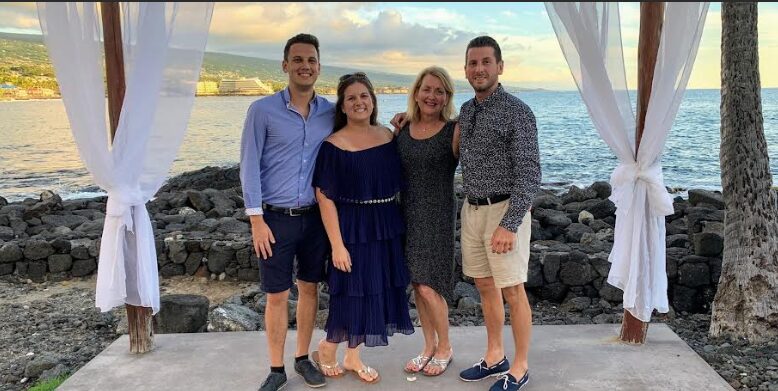Alexandra Rego, who was born with spina bifida, and hydrocephalus, channeled her lived experience and love of children into training in early childhood education. She has an educational assistance diploma, specializing in children with disabilities and teaching and learning strategies. She was also able to work with children and teenagers through her many co-op experiences.
Alexandra had some struggles gaining employment in her field. Her disability required her to be able to work from home but everywhere she applied had said “we don’t do that”. The Covid pandemic changed all that and created many opportunities. This also helped mitigate any anxiety regarding working with her disability. Plus, she could focus on her work and well-being simultaneously.

Alexandra gained meaningful employment from a referral by a friend in 2022, first as a peer researcher (lived experience expert) with the University of Toronto and a core member of the research team, looking at disability and reproductive health across the life course. With that opportunity came a few others, most recently with the Brain Heart Interconnectome within the University of Ottawa, which is also remote, as a patient partner looking at the connection between the brain and the heart in health outcomes. She helps to ensure that patient partners and lived experience experts are involved effectively, ethically and that accessibility is at the forefront of the work.
Thirty-seven-year-old Alexandra comes from a close family, which includes her parents and younger sister Nicole. Growing up, Nicole was an extra pair of eyes for her parents and always watched out for her. Both her parents worked full time and shared the responsibility of taking her to medical appointments, helping with homework and related activities.
Years later she and her sister remain close and can talk about anything. Alexandra’s sister and parents live close by and are always available to help.
For the last year and a half, Alexandra and her fiancé Bret, who also has spina bifida and hydrocephalus, have lived in an accessible condominium in Mississauga. There is an on-site medical walk-in clinic, a hospital and shopping mall close by which are great additional accessibility features that aren’t always available. Alexandra walks with ankle foot orthotics (AFO’s) and uses walking sticks for more stability for long distances and uneven terrain. She uses adaptive public transit which provides a lot of independence and relies on her support systems when adaptive public transit isn’t feasible.
“This is the first home that we have lived in that has met practically all our needs. It’s nice not to have to make do.”
Since Bret uses a wheelchair, the condo had an accessible bathroom which included a roll-in shower, enough space for a wheelchair to maneuver and a roll under sink. Since Alexandra and Bret have different needs, the second bathroom was adapted from a bathtub to a walk-in shower with grab bars due to her lack of balance. The kitchen is standard height, so during meal preparation, Bret helps prepare food at the kitchen table.
The couple met online during the Covid-19 pandemic, through mutual friends. They used social media to get to know each other, such as video chats, phone calls, and then finally a few driveway dates.
“Covid allowed us the luxury to really get to know each other.” They had no expectations for an intimate relationship; they liked spending time together as friends and their romance grew from there.
Growing up Alexandra experienced bullying due to her disability. She learned to hide her disability at all costs and tried to fit in. This pushed her into a pattern of not always looking after herself and ignoring the reality of her disability.
Eventually, health concerns and life issues forced Alexandra to confront everything she had been avoiding and begin to live a life of authenticity. Until recently, the health impacts of hydrocephalus, aside from her learning disabilities, did not affect her. About two years ago, she experienced quite abruptly very painful headaches that sent her to the emergency room where she was given strong intravenous pain medication, but to no avail. The doctors gave her more pain medication and sent her home, believing the headaches would eventually stop.
A few days later, she felt ill again and needed to sit down. She began to feel nauseated and nearly passed out. The paramedics took her to emergency again but she was sent home after tests came back normal a second time.
The following day, Alexandra began to experience eye pain and her right eye pointed inward which was abnormal for her. She consulted an emergency optometrist who sent her to the ophthalmologist who determined that her optic nerves were extremely swollen. She was immediately sent to emergency at a third hospital with a letter stating she needed to be admitted and not sent home again. Alexandra spent about two weeks in hospital, receiving care from a neurologist, doctors, and nurses, who all focused on pain management rather than the root cause.
Upon release she returned to the ophthalmologist who noted no change and referred her to a neuro-ophthalmologist who thought that her shunt was not working properly. A neurosurgeon confirmed this with emergency exploratory brain surgery and installed a new programmable shunt that is easily adjusted with a magnet. The existing non-programmable shunt she received at birth and this new programmable shunt are now working together to keep things stable. The headaches are gone and so far, she is fine.
Just as she learned to look after her physical health, Alexandra acknowledges the importance of maintaining good mental health. She consulted multiple psychologists and social workers throughout the years that were all short-term solutions. It wasn’t until she saw a psychotherapist for six years on a needs’ basis that she developed tools for stress management, effective communication skills and looking at things through a trauma informed lens. She has also learned that living with a disability can be heavy at times and to seek enjoyable activities.
Alexandra offers the following advice for anyone with spina bifida and or hydrocephalus: “Remember, we are worth it. Life is worth living, even though it can be hard. Lean on community for support. Don’t ignore your disability and be sure to take care of yourself. Self advocate. You are enough and are loved. You belong.”


